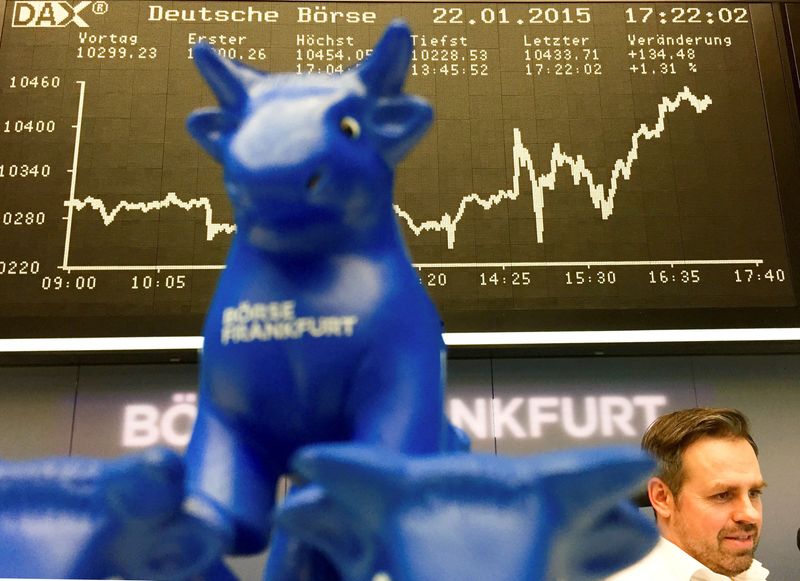By Peter Nurse
Investing.com - European stock markets are expected to open in a muted fashion Monday, with investors cautious at the start of a week that includes the release of important Eurozone activity data as well as the minutes from the last Federal Reserve meeting.
At 02:00 ET (07:00 GMT), the DAX futures contract in Germany traded 0.1% lower, while CAC 40 futures in France climbed 0.1% and the FTSE 100 futures contract in the U.K. rose 0.1%.
Monday’s U.S. holiday, to celebrate President’s Day, is likely to limit trading volumes in Europe, but investors will also be wary of taking strong positions ahead of some important regional economic data.
The highlight of the week will be Tuesday’s flash PMI data for February, which will show how well the Eurozone economy is performing after unexpectedly growing in the final quarter of 2022.
Germany’s Ifo Business Climate Index on Wednesday will show how the region’s largest economy is weathering the energy crisis, while the bloc is also to release final inflation figures for January on Thursday, which will be in focus after delayed German data was omitted from the first estimate.
ECB officials have repeatedly highlighted their fears about stubborn underlying inflation.
Across the pond, the minutes from the Fed’s last meeting will be in focus on Wednesday amid renewed uncertainty over how high interest rates may ultimately rise after data released last week suggested inflation is proving to be more sticky than policymakers hoped.
Elsewhere, China’s central bank left its interest rates unchanged earlier Monday, tensions between Beijing and Washington remained fraught due to issues surrounding the alleged Chinese spy balloon and potential aid to Russia, while North Korea has reportedly fired three ballistic missiles off its east coast on Monday.
Oil prices rose Monday, bouncing after last week’s losses as traders focus on likely supply shortages as the year progresses amid optimism over China's demand recovery.
Russia is set to cut oil production by 500,000 barrels a day in March in response to the Western powers imposing price caps on its oil and oil products.
Additionally, the Organization of the Petroleum Exporting Countries and allies, a group known as OPEC+, last October stated it would cut oil production targets by 2 million barrels per day until the end of 2023.
This reduction in supply is occurring while China's oil imports are expected to hit an all-time high in 2023 due to increased demand as the world’s largest crude importer rebounds from its severe COVID restrictions.
By 02:00 ET, U.S. crude futures traded 0.7% higher at $77.11 a barrel, while the Brent contract rose 0.8% to $83.64.
Both benchmarks dropped around 4% last week on worries that more Federal Reserve interest rate hikes will depress economic activity in the U.S., the largest consumer in the world.
Additionally, gold futures rose 0.1% to $1,852.40/oz, while EUR/USD traded 0.1% lower at 1.0690.
